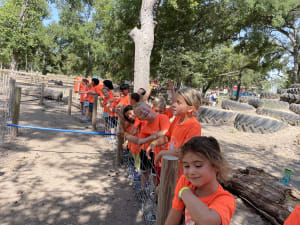
Children often pick their peers based on a combination of factors that can be influenced by their age, personality, interests, and environment. Here at Peak Performance Martial Arts training in Cedar Park, featured in areas such as Leander, Cedar Park, Liberty Hill, North Austin, Round Rock, and Georgetown we help develop a safe and engaging environment to promote making the right friends for them.
Age: Children often gravitate towards peers who are of a similar age. This is because they tend to have more in common with kids who are at a similar developmental stage and share similar experiences.
Shared Interests: Common interests and hobbies play a significant role in peer selection. Children are drawn to others who enjoy the same activities, such as sports, arts and crafts, video games, or reading. Shared interests provide a basis for bonding and spending time together.
Proximity: Children often form friendships with peers who are physically close to them. This can include classmates, neighbors, or children who attend the same extracurricular activities or clubs.
Personality: Personalities can also influence peer selection. Some children are naturally more outgoing and social, while others may be introverted and prefer smaller, close-knit groups. Kids may gravitate towards peers with personalities that complement their own.
Similar Values: As children grow older, they may start to consider values and beliefs when choosing their friends. Kids who share similar values, such as honesty, kindness, or empathy, are more likely to form lasting friendships.
Social Skills: Children often choose friends who they feel comfortable around and who display good social skills. Kids who are friendly, empathetic, and able to communicate effectively tend to attract peers.
Family Influence: Family plays a role in peer selection, as parents or caregivers may encourage or discourage certain friendships. Cultural and familial values can also influence the types of peers children are encouraged to befriend.
Similar Backgrounds: Children may form connections with peers who come from similar backgrounds, whether it's cultural, socioeconomic, or familial. Shared experiences can create a sense of belonging and understanding.
Empathy and Inclusivity: Some children have a strong sense of empathy and are more likely to be inclusive, making an effort to befriend kids who may be perceived as different or marginalized.
It's important to note that peer selection is a dynamic process, and children's preferences and priorities may change as they grow and develop. Parents and caregivers can play a role in guiding their children towards healthy friendships by fostering positive social skills, teaching empathy, and encouraging open communication about their friendships and experiences.


